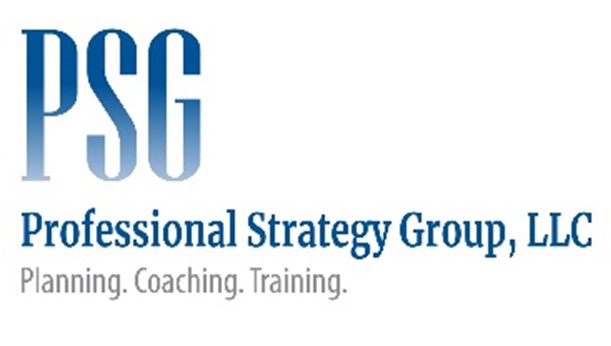Generally speaking, CPA firms will almost always respond to an RFP – whether they should or shouldn’t. So they act like there’s no cost to responding to an RFP, when in fact, there certainly can be in terms of out-of-pocket costs for producing printing materials, slide presentations and the like.
The most considerable cost of responding to RFPs, of course, is time. In all instances, most firms do not even track how much time the Partners and other team members spend on putting together their responses to an RFP. Frankly, they act like there’s no cost to it.
So what can we do to maximize our time in new business development for accounting firms when it comes to responding to RFPs?
1. Learn The Word “NO.”
If we say “YES” to every RFP, there’s no strategic thinking involved in why we choose what we do. Becoming more strategic in our response demands that we say “NO” to certain RFPs that simply do not align. Just because you received an RFP does not mean that you’re obligated to respond.
2. Ask Why You Were Selected To Participate
It’s a safe bet that most firms will not ask why they have been selected to participate in the RFP process when they are fully entitled to do so. They’ll say, “We’re just happy to be invited.” That’s not a good answer. Call the CFO or official contact of the RFP and ask them why you were selected for the shortlist. Was it because of a particular strength your firm has? Is it because someone referred you in? If a company issuing an RFP is going to give you a set of detailed instructions on what they need from you and questions to answer, you can ask a few in the name of qualifying yourself in or out of
3. Are You Willing To Go “All In” To Distinguish Your Firm?
Many firms don’t fully answer RFPs because their resources are stretched thin, so they respond to many with only the bare minimum answers across the board. That’s your opportunity to distance yours from the rest of the pack and if you’re not willing to do what it takes on that front, you shouldn’t participate in the RFP process at all.
If you are going to participate, what research can be done to uncover any insights that the prospect is missing that they didn’t put in their RFP? Are there specific weaknesses that you might find in their tax filing position or approach to cybersecurity, for example? Get your hands dirty and go deep on where the golden nuggets of wisdom are that you can unearth. This can be how an RFP is won or lost.
4. If You Participate, Don’t Rely On Price As The Reason For Winning Or Losing.
The firm that doesn’t win the RFP and refuses to do more than what is required in response will lean on that tired, old excuse of, “We lost because so-and-so underbid us.”
The prospect will indeed get the firm they want at the price they’re willing to pay. But a firm that doesn’t get any chance even to negotiate price was probably never the choice to begin with and there was undoubtedly another reason you didn’t win.
Here’s the actual way it works:
If you are the frontrunner and the prospect wants to give you the business, you will win it IF you are genuinely willing to negotiate.
Consider this scenario: A prospect puts something out for bid and, after receiving responses, really wants to select Firm A for the business. There’s just one problem: Firm A has come in at a price over $1 million and Firm B has come in under $1 million, obviously underbidding Firm A. The Tax Directors in the firm would like to go with Firm A and say to that firm, “We’d love to give you this work. We think you’re absolutely right for us to do this work. But procurement tells us that we have to give it to Firm B unless you cut your fee to match theirs. If you can match their fee, the work is yours.”
That’s the way it works in a proposal. There’s almost always a frontrunner. And if the frontrunner is being underbid yet the prospect wants the frontrunner, they will give the frontrunner the opportunity to match the bid.
5. Are You Going To Prepare For The Presentation Or Not?
If you want to change how your CPA firm is viewed from a service provider to a valued advisor, you have to ask yourself what you can do better at all times. At the top of this list, we see that many firms don’t like to rehearse, they don’t like to prepare the questions they want to ask and they don’t have answers prepared for what they might be asked in a meeting.
Everybody thinks they’re so good at “winging it” that they will meet at a Starbucks an hour before the presentation to touch base. We’re not kidding. We’ve seen this happen. The firm has spent all this time preparing answers to the RFP and what do they do when it’s time for the oral presentation? They put no preparation into it at all. None! If you’re not going to prepare for the presentation, don’t bother participating in the first place. You’re not ready and it will show. If you want the business, go all the way.
Your firm’s batting average will be higher when you get more selective and strategic.
If you think about baseball players, the best hitters don’t swing away at everything. They study the opposing pitcher. They pick their best opportunities to swing. They wait for the right moment. And then, if they’ve timed it just right, they crush it.
Professional Strategy Group teaches you how to get your average up by responding to the right RFPs and then how to convert that response into a winning sales proposition.
Our full-day course in Professional Selling and Listening Skills will point the way with how you can: Discover what a prospect truly needs in looking for an ideal fit, research target backgrounds, incorporate better questioning methods and even lose your full dependence on answering RFPs. And it’s just one part of The PSG System that can transform your CPA firm for good. To learn more, call us today at 312.860.0873.




